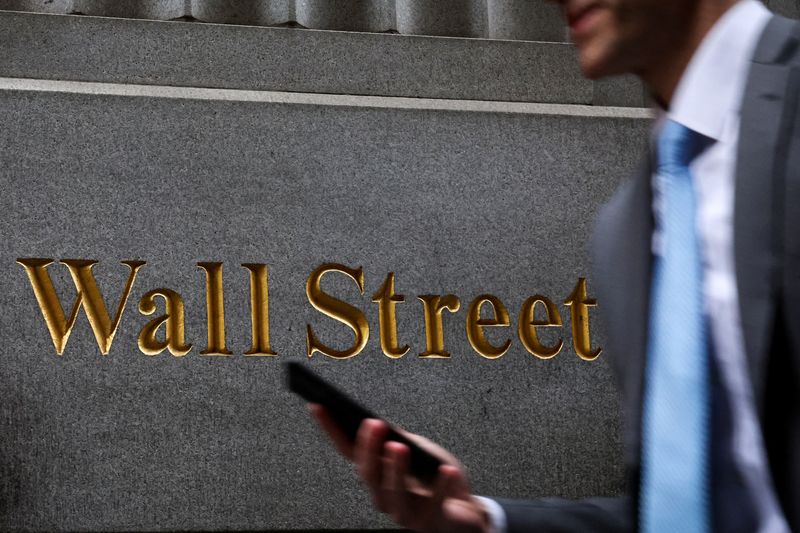
By Shankar Ramakrishnan
(Reuters) -U.S. corporate bond markets are showing signs of caution about the economy and inflation despite a rebound in new issuances and credit spreads in the weeks since President Donald Trump first announced harsh tariffs and then provided temporary relief on them, bond market experts said.
Some 15 investment-grade companies, including Google’s parent Alphabet, issued new bonds on Monday. In a sign that the administration’s rollbacks on some tariffs had brought back investor appetite, the issuances that raised a total of $18.3 billion saw $95 billion in orders, according to Informa Global Markets data.
When corporate bond offerings usually get more orders than the amount of debt a company is willing to raise, it is seen as a sign of strong liquidity conditions in the fixed income market.
At the same time, spreads – or the premium investors demand over Treasuries – for high-grade bonds had tightened by 17 basis points from the high reached on April 9, a sign that there was more demand for these bonds. The spreads on high-yield bonds had come in by 72 basis points from the high touched on April 4.
Even so, bond market experts said the numbers betrayed persistent nervousness among investors about the economic and policy uncertainty around tariffs.
Investors, they said, were still shying away from taking on too much risk, preferring the highest-rated companies even in investment-grade and worrying about the outlook of interest rates amid inflation fears due to tariffs.
“Sentiment is still fragile,” said Zachary Griffiths, head of investment-grade and macro strategy at CreditSights.
Griffiths said the demand for bonds on Monday was still “a sign of a risk-off sentiment” that increased when Trump announced high tariffs on imports from dozens of countries. That had resulted in a preference for sovereign bonds and high-quality corporate bonds over other riskier assets.
In addition, Griffiths said, investors worried that inflationary pressures due to tariffs will make the Federal Reserve less willing to ease rates. “That just means credit spreads are biased wider,” he added.
Trump’s tariff announcement, which the administration billed as “Liberation Day,” triggered pandemonium in global markets, with investors fleeing risky assets such as stocks, while exiting U.S. assets in droves.
Investors pulled $6.1 billion from high-grade debt funds and $9.6 billion from high-yield debt funds in the week that followed the Liberation Day tariff announcements, Lipper U.S. Fund Flows data showed.
